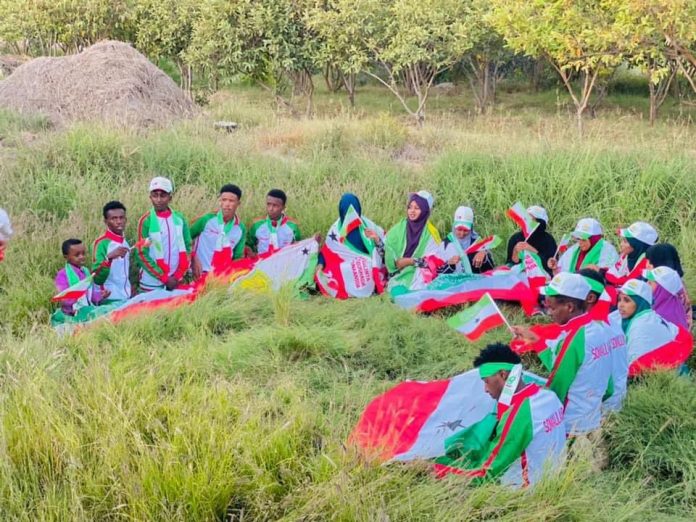Africa is ground zero for the struggle to consolidate democratic gains. While the continent underwent a democratic revolution in the 1990s and early 2000s, the past decade has been difficult. It is in this context that Somaliland, an autonomous region that is officially part of Somalia, has been particularly important. The Horn of Africa is home to some of the continent’s most dictatorial (Eritrea), murderous (Ethiopia), and unstable (Somalia, South Sudan) regimes. Somaliland has stood out not only for its embrace of democracy, but also for its culture of peace and tolerance. While Somalia descended into decades of civil war and state failure, Somaliland remained peaceful and democratic and rebuilt itself with little external support.
A Successful Track Record for Somaliland
Somaliland has now held seven parliamentary or presidential elections. Fewer than 100 votes out of nearly 500,000 cast determined the 2003 presidential election, with Ahmed Mohamed Mohamoud “Silanyo” amiably conceding defeat. (He would later win the 2010 presidential polls.) Likewise, an opposition coalition won the 2021 parliamentary elections, a result that President Muse Bixi accepted with grace.
Somaliland also became the first country to secure voter registration with biometric iris scans. While Somalia received billions of dollars in outside support but consistently failed to hold reliable elections, Somaliland showed that governments can succeed when they have the will to do so.
That said, Somaliland’s democracy has had its problems. While Somalilanders regularly contested its presidency, a combination of political gridlock and technical factors led to a 15-year delay for parliamentary elections. This inexcusable delay gave a strong argument to those seeking to denigrate Somaliland’s democracy and its accomplishments.
Critics also note that Somaliland’s major political parties too often organize around systems of patronage rather than substantive ideological debates. While it is true that democracy evolves when robust discussion of issues takes precedence over the competition of personalities, outsiders should not mistake Somaliland’s personality- and patronage-driven debate as a strike against the quality of its democracy. Somaliland’s current personality-centered politics bear no resemblance to Iraq-style fighting over resources. Instead, they reflect the consensus within society on key issues surrounding the country’s broad direction. Few Somalilanders, for example, question the drive to achieve the recognition of independence that Somaliland forfeited in 1960.
Sometimes, however, Somaliland falls victim to the lack of self-confidence that often characterizes young democracies. The Interior Ministry’s occasional attempts to penalize journalistic expression are extremely counterproductive. So too are efforts to suppress demonstrations. Certainly, a lack of press professionalism upsets politicians from all three parties, but any crackdown on expression makes martyrs out of an ideological fringe and amplifies their influence by rapidly increasing the attention they receive. Sometimes, letting polemicists shout into the wind until they lose their voice is the better strategy, especially in a society like Somaliland’s that prizes consensus and moderation.
Some outside criticism can also be unfair. Few outside Somaliland understand how the legacy of a genocide only recently inflicted on Somaliland impacts public consciousness. Somaliland’s security and its society are fragile. Somali President Hassan Sheikh Mohamud may strike a moderate tone, but Somalilanders cannot base their security on rhetoric alone, especially after former Somali President Mohamed Farmajo worked to undermine Somaliland’s sovereignty and security even as he sought to return Somalia itself to dictatorship.
Dangerous Electoral Brinkmanship
But Somaliland’s political leadership can never lose sight of the big picture. Democracy is Somaliland’s brand — the major reason it has attracted so much positive attention in recent years from the United Kingdom, the European Union, the United States, and Taiwan. It is the reason Congressional staff and military delegations now visit. While strategic factors play a role, discussion about Somaliland’s status as a putative nation would not be as advanced as it is if Somaliland were just another strongman state.
Rhetoric by some Somaliland politicians suggesting it is becoming just such a state is overblown, but damaging. Bixi’s term ends in November. Opposition parties cast aspersions at the president for delaying elections, but they share the blame. Politicians often engage in brinkmanship. Last year’s parliamentary and local elections came late because the opposition rejected first the existing electoral commission and then the chairman of a newly appointed commission, effectively wasting a year. The opposition-dominated parliament next refused initially to confirm three members of the election commission. They then went on recess before approving the members, wasting another three months. Perhaps some politicians saw advantage in such maneuvering, but it was highly irresponsible to play in such a way with Somaliland’s image.
The election commission has made it clear that it will take nine months to organize elections, putting the presidential polls in July 2023. This represents a slight delay. The Somaliland senate, however, has voted to extend Bixi’s term for two years. Perhaps the senate simply wanted to provide some additional flexibility to raise money and do elections right, but it would be a mistake for Somaliland to delay elections any further. For Bixi to extend his term beyond July would erode the goodwill Somaliland has earned due to its democratic record and set a negative future precedent.
Maintaining a truly democratic system should be the paramount interest for all Somalilanders, not only because it ensures internal balance, but also because it represents Somaliland’s best case for international recognition.




























